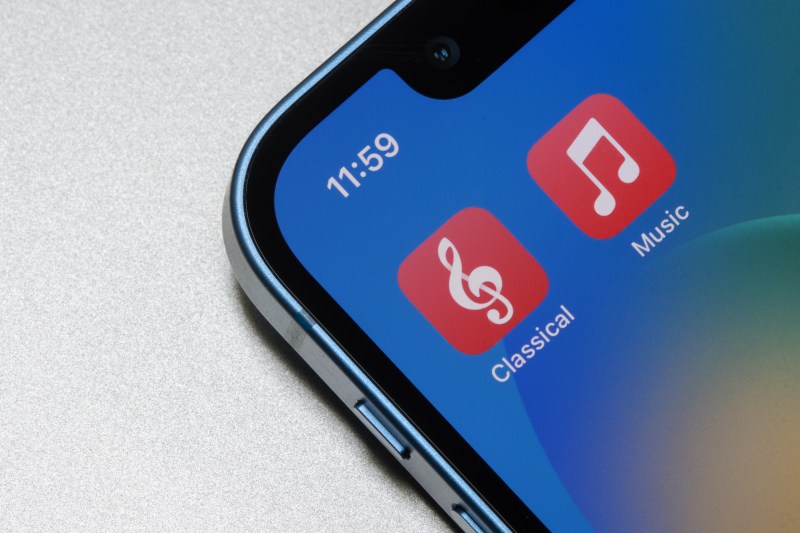
Amazon Music, Spotify, or Apple Music — whether you’re grinding through your work commute or unwinding in your safe space at home, music is a part of that, and your favored streaming app is how you listen to it. Some of us like to rock out to get mentally psyched for the workday, and some want to soothe their souls on the way home. While classical music may not be everyone’s first choice when planning a playlist, it’s grown in popularity over the last few years. Through social media like Instagram and TikTok, classical music is getting recognized more and more, and Apple wants it to get even bigger with an app you may not know it already released.

The classical comeback
The pandemic not only made us realize we could make bread from scratch, but it made people remember classical music was a thing. The uptick started in 2020 when we needed something to do to pass the time, and people found classical music helped keep them sane during the lockdown. Classical became the fastest-growing musical genre by 2022, with Gen Z and Millennials being the main groups to embrace the sound of strings.
How Apple entered the chat
The tech giant realized this, too, and not only did Apple release a classical music app in 2023, but recently bought Swedish classical musical label BIS to add to the catalog. The original Apple Music app does have classical in there, but the new app, Apple Music Classical, is solely for those whose heartstrings get pulled by musical strings.
Apple first tried to start this in 2021 when it purchased the Amsterdam service Primephonic, which had debuted in 2014. Primephonic was bought with the intention to release Apple’s classical music app in 2022 but didn’t quite make the deadline, with the app not seeing daylight until 2023.
Apple borrowed some of the popular features of Primephonic for its version, and so far, the Apple Music Classical app sits at a 4-star rating. Not too shabby for a newcomer working through the bugs.
The purchase of BIS, which has been around for 50 years, is significant for the future of classical music. Not only does BIS bring much-needed street cred to Apple’s app, but BIS is also giving Apple its entire catalog. This is massive for Apple, as they will now have the largest classical music library for subscribers to access.

Apple is betting on classical catching on
Apple is additionally focusing on growing its classical fanbase by working directly with artists for content that will be exclusive to Apple because that’s what Apple does best.
The app details
Pros
- Has the world’s largest classical library.
- There’s no additional cost to use the app if you already have an Apple Music subscription.
- Available worldwide and works on all iPhones.
Cons
- Still doesn’t have the shuffle option.
- Has some playlist kinks to work out.
- Have to have an Apple Music subscription to listen.
If you didn’t even know Apple has a classical music app, that’s okay. It’s not the most popular app yet, with ones like IDAGIO and Sonata having stronger ratings, but it’s a great contender. And with the acquisition of BIS, it will be a matter of time to see if Apple takes the top spot.
The fact that Apple has put its money behind classical music is huge for those of us who already know how amazing the genre is. And while we know Bridgerton‘s brilliant move of taking current radio hits and giving them a classical twist might have had something to do with its rise in popularity, we appreciate the newfound appreciation for classical music and hope the Apple Music Classical app brings it even more love.



